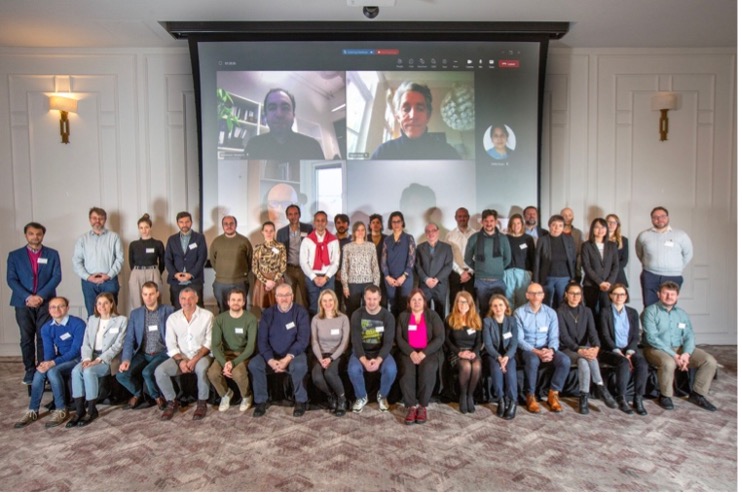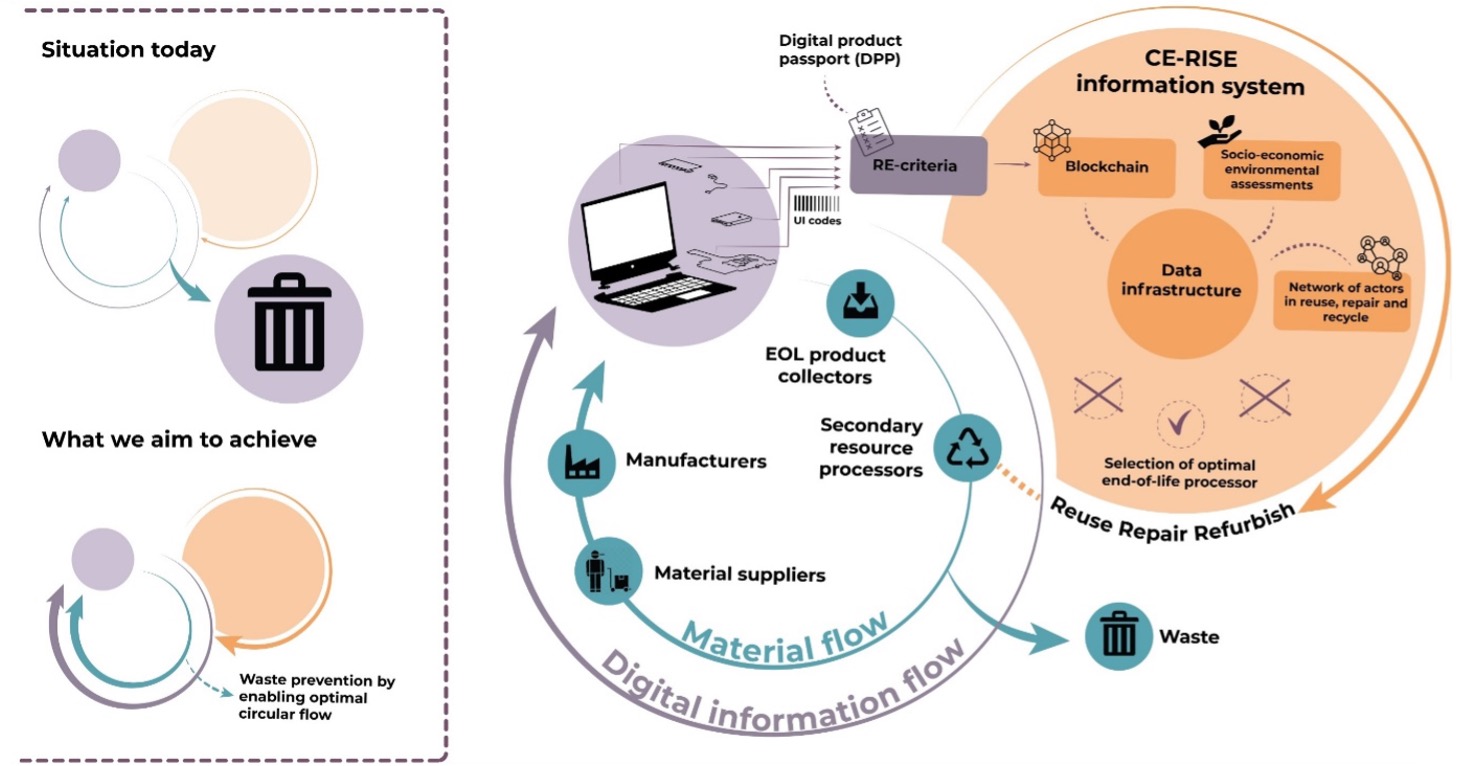CE-Rise – EU-funded project aiming to optimise raw material reuse and recovery in electronic products🔌
ECOLOGICON GmbH is actively engaged in the CE-RISE project. ECOLOGICON will contribute its expertise in the areas of reverse logistics and recycling of end-of-life (EoL) electrical appliances. Many years of experience in the collection of printer cartridges and their recycling will play an important role. ECOLOGICON is looking forward to support this ambitious project with its extensive know-how on WEEE take-back solutions.
Renewable energy technologies (RET) and information and communication technologies (ICT) are playing a vital role in the transition to a digitalised and zero emission Europe. However, these technologies are manufactured using important raw materials. The European Union classes raw materials as ‘critical’ if these are vital to the economy. This classification also applies if their supply is at risk because they come from conflict zones or are largely controlled by one or just a few countries.
The war in the Ukraine proves that the availability of important raw materials becomes more and more important. Russia, for example, accounts for over 40% of the world’s palladium production.1 Changes in geopolitical situation can quickly and adversely affect the supply chain for critical raw materials.
The European Union wishes to increase its control over the supply of these and one way of doing this is to focus on those already contained in products being used in Europe
The project consortium consists of OEMs, IT experts and research institutions as well as service providers along the entire value chain of electrical and electronic equipment. Regarding these products, critical raw materials are taken into consideration with the aim of developing a data platform that can provide detailed information on them. The project “Circular Economy Resource Information System (CE-RISE)” is being developed as an open information platform to provide stakeholders, such as consumers, with a better insight into environmentally friendly criteria for electronic products. Products or components that contain critical raw materials are to be specifically recorded and made more available for reuse or recycling.

CE-RISE aims to close loops and increase the lifespan of circulating raw materials through an information system. The system enables the exchange of necessary information between the actors along the entire value chain and provides necessary data on the content and composition of products. This will improve the reuse and recycling for the recovery of critical raw materials. In this way, the resilience of important value chains as well as the security of supply for critical raw materials are ensured.
- Defining a set of criteria to evaluate the extent to which products and embedded components can be reused, repaired, refurbished and/or recycled – the so called ‘RE criteria’;
- Incorporating information on RE criteria and material composition of products into a Digital Product Passport (DPP) to enable traceability of materials in the supply chain;
- Integrating DPP with information on the product environmental footprint (PEF), and socio-economic and environmental (SEE) impacts of RE processes;
- Enabling confidential and anonymised information sharing among actors throughout value chains;
- Providing open access software application to disseminate information on the assessment of RE criteria, PEF and SEE impacts of products to all stakeholders including consumers and policymakers.
The functionality of the CE-RISE information system and products will be evaluated by five case studies in which a Digital Product Passport will be developed for ICT products, printers, solar panels, batteries as well as heating systems.

CE-RISE-Consortia
Launched in January 2023, CE-RISE project, led by NILU, involves 28 partners from 11 countries. The project, funded in the framework of Horizon Europe (project number: 101092281), will conclude in December 2026.
For enquiries, please contact André Rückert, Project Development, ECOLOGICON GmbH | Consulting & Circular Economy.
You might also follow the CE-RISE project on LinkedIn and Twitter.
Sources: